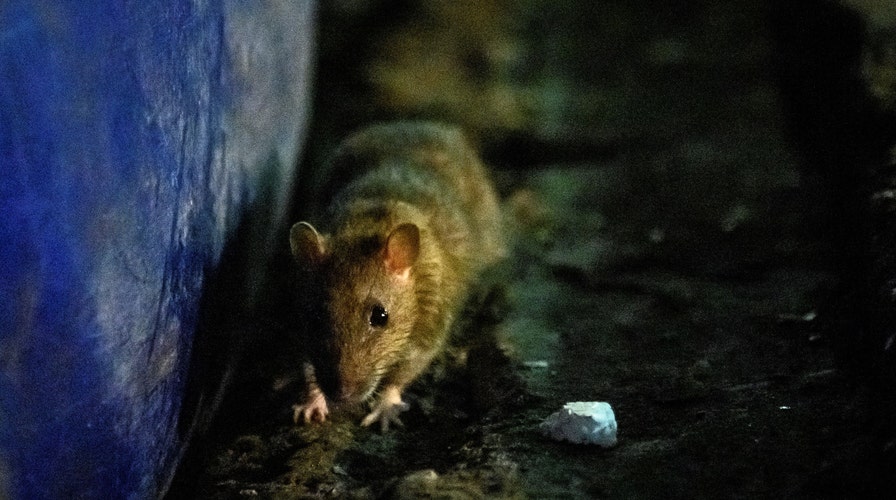Fox News Flash top headlines for May 25
Fox News Flash top headlines are here. Check out what's clicking on Foxnews.com.
Get all the latest news on coronavirus and more delivered daily to your inbox. Sign up here.
The Centers for Disease Control and Prevention warned people last week of an aggressive rat problem in the U.S. stemming from a decrease in food waste during the coronavirus pandemic.
Due to nearly two months of human lockdown, city-dwelling rodents now find themselves resulting in cannibalism and aggressive behavior as they fail to dine out on restaurant waste, street garbage, and other food sources, according to the agency.
"Community-wide closures have led to a decrease in food available to rodents, especially in dense commercial areas," the CDC said. "Some jurisdictions have reported an increase in rodent activity as rodents search for new sources of food. Environmental health and rodent control programs may see an increase in service requests related to rodents and reports of unusual or aggressive rodent behavior."
STARVING 'CANNIBAL' RATS ARE ON THE MARCH DURING THE CORONAVIRUS PANDEMIC
Last month, the lockdown rat sightings were reported in a number of U.S. cities, such as New York, Seattle, and New Orleans. Some rats in New York City even resorted to cannibalism, urban rodentologist Bobby Corrigan told Fox News.
“Starving rats, of course, like most mammals will become aggressive and violent, killing and then eating other rats in order to stay alive,” added Corrigan, who is also a consultant at RMC Pest Management. “Rat carcasses are being seen on the streets partially eaten by stronger or other rats.”
He added that in specific areas, rats are "heavily dependent on commercial food trash of restaurants and stores that have closed since the COVID outbreak."
Before the CDC warning, Corrigan said the aggressive rats -- tempted by the smell of food -- could attempt to invade homes by slipping through cracks in buildings.
“Starving rats in these blocks are now wandering both day and night, in different directions, and if they smell food leaking from people’s door gaps, they will try to follow their noses and squeeze below the doors (i.e., enter the property),” he told Fox News.
The CDC advised residents -- especially in urban areas -- to eliminate conditions that could attract and support rodent presence.
"Preventive actions include sealing up access into homes and businesses, removing debris and heavy vegetation, keeping garbage in tightly covered bins, and removing pet and bird food from their yards," the agency said.
ROME SEAGULLS HUNT RATS, PIGEONS AS CORONAVIRUS LOCKDOWN DEPRIVES THEM OF HUMAN SCRAPS
Surveillance video taken by Awe News two months ago showed rats swarming the empty streets of New Orleans in search of food amid the city’s lockdown.
“It’s a difficult time to be a rat,” said Claudia Riegel, director of the city’s Mosquito, Rodent and Pest Control Board, during a recent press conference. “Because the food is limited, they are going to start fighting with each other.”
CLICK HERE FOR MORE CORONAVIRUS COVERAGE
The CDC said to follow established guidelines when cleaning up after rat infestations to prevent exposure to rodent-borne diseases. They added that rodent population fluctuations are often experienced during natural disasters.
Fox News' James Rogers contributed to this report





















